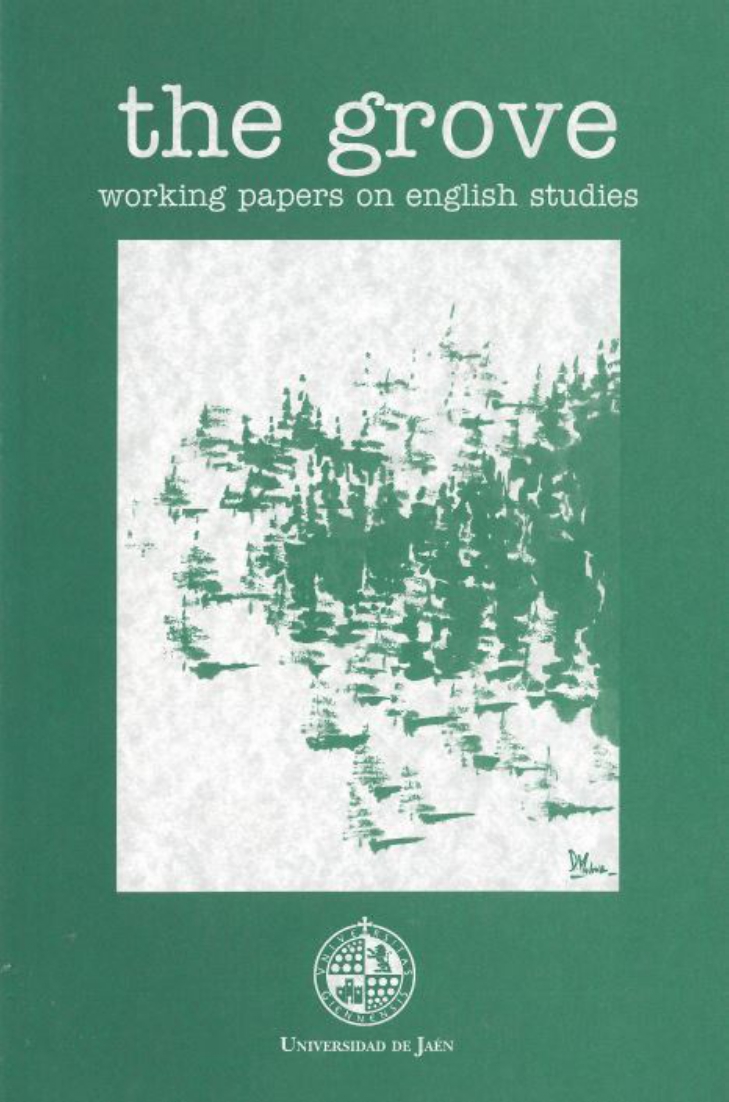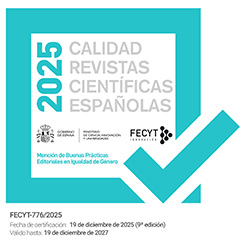The Lucky Form of Truth
Mark Strand Reads Edward Hopper’s Paintings
DOI:
https://doi.org/10.17561/grove.v29.6657Keywords:
Mark Strand, Edward Hopper, self, matter, non-human world, nothingnessAbstract
This article explores poet Mark Strand’s facet as an art critic and, more specifically, the way in which the pictorial universe of American painter Edward Hopper influenced his own poetry, both thematically and stylistically. Reading Hopper’s well-known oil on canvas House by the Railroad (1925) in a New York Times article entitled “Crossing the Tracks to Hopper’s World,” published on 17 October 1971, Strand dwells on “Hopper’s fascination with passage” (340). Years later, he would expand his critical exegesis of House by the Railroad and other canvasses by the American painter in a book-length essay titled Hopper (1994) in ways that are expressive of his own poetics. Both Strand and Hopper look at the world with an inquisitive gaze and capture moments in time with utter clarity to show that the self is a mystery and humans are transients yearning for a moment of revelation, a momentary stay against confusion.
Downloads
References
Badiou, Alain. Manifesto for Philosophy. Translated by Norman Madarasz. State University of New York Press, 1999.
Barad, Karen. Meeting the Universe Halfway: Quantum Physics and the Entanglement of Matter and Meaning. Duke University Press, 2007. https://doi.org/10.2307/j.ctv12101zq
Bennet, Jane. Vibrant Matter: A Political Ecology of Things. Duke University Press, 2010.
Bloom, Harold, editor. Mark Strand. Comprehensive Research and Study Guide. Chelsea House Publishers, 2003.
Bringhurst, Robert. “Lucky Truth.” Mānoa, vol. 25, no.1, 2013, pp. 197-99. https://doi.org/10.1353/man.2013.0000
Childs, Jeffrey Scott. “Reasons for Moving: Mark Strand on the Art of Edward Hopper.” Viagens pela palavra. Universidade Aberta, 2005, pp. 129-43.
Csikszentmihalyi, Mihaly. Creativity: The Psychology of Discovery and Invention. Harper Collins, 1996.
Doherty, Brian. “Portrait: Edward Hopper.” Art in America, vol. 52, 1964, pp. 68-88.
Frost, Robert. Complete Poems of Robert Frost. Holt, Rinehart and Winston, 1964.
Goodrich, Lloyd. Edward Hopper. Harry N. Abrams, 1976.
Kardokas, Laima. “The Twilight Zone of Experience Uncannily Shared by Mark Strand and Edward Hopper.” Mosaic: An Interdisciplinary Critical Journal, vol. 38, no. 2, 2005, pp. 111-28.
Kranzfelder, Ivo. Hopper. Border’s Press, 1998.
Lucie-Smith, Edward, and Gail Levin. “Edward Hopper.” Lives of the Great 20th-Century Artists. http://www.moma.org/collection/ Accessed 10 Jun. 2021.
Parini, Jay. “Mark Strand.” The Oxford Companion to Twentieth-Century Poetry in English. Ed. Ian Hamilton. Oxford University Press, 1994.
Popova, Maria. “Pulitzer-Winning Poet Mark Strand on the Heartbeat of Creative Work and the Artist’s Task to Bear Witness to the Universe.” https://www.brainpickings.org/2015/01/28/mark-strand-creativity/ Accessed 10 Jun. 2021.
Salter, Mary Jo. “S Is for Something: Mark Strand and Artistic Identity.” Sewanee Review, vol. 125, no. 1, 2017, pp. 190–213. https://doi.org/10.1353/sew.2017.0017
Strand, Mark. “Crossing the Tracks to Hopper’s World.” 1971. Poets on Painters: Essays on the Art of Painting by Twentieth-Century Poets. Ed. J. D. McClatchy. University of California Press, 1988, pp. 339-44.
Strand, Mark. “Hopper: The Loneliness Factor.” 1985. Writers on Artists. Ed. Daniel Halpern. North Point Press, 1988.
Strand, Mark. Blizzard of One. Alfred A. Knopf, 1998.
Strand, Mark. Reasons for Moving, Darker & The Sargentville Notebook: Poems. Alfred A. Knopf, 2006.
Strand, Mark. The Story of Our Lives, with the Monument and The Late Hour. Alfred A. Knopf, 2002.
Strand, Mark. Hopper. Alfred A. Knopf, 2001.
Strand, Mark. The Weather of Words: Poetic Invention. Alfred A. Knopf, 2000.
Tuan, Yi-Fu, and Gretchen Schoff. Two Essays on a Sense of Place. Wisconsin Humanities Committee, 1988.
Updike, John. “Hopper’s Polluted Silence.” The New York Review of Books, vol. 42, no.13, August 10, 1995.
Published
Issue
Section
License
Copyright (c) 2022 Leonor María Martínez Serrano

This work is licensed under a Creative Commons Attribution 4.0 International License.
Authors who publish with this journal agree to retain copyright and grant the journal right of first publication with the work simultaneously licensed under a Creative Commons Attribution License that allows others to share the work with an acknowledgement of the work's authorship and initial publication in this journal. Also, authors will retain the rights on their work, even if they will be granting The Grove. Working Papers on English Studies a non-exclusive right of use to reproduce, edit, distribute, publicly communicate and show their work. Therefore, authors are free to engage in additional, independent contracts for non-exclusive distribution of the works published in this journal (such as uploading them to an institutional repository or publishing them in a book), as long as the fact that the manuscripts were first published in this journal is acknowledged.

























